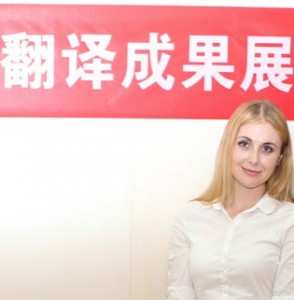 I have always had a deep interest in Chinese culture, since as far back as I can remember. This grew to become a strong interest in the country’s language, society, and politics. What the BICC PhD scholarship has given me is an opportunity to develop an academic-based career and a life for myself in China.
I have always had a deep interest in Chinese culture, since as far back as I can remember. This grew to become a strong interest in the country’s language, society, and politics. What the BICC PhD scholarship has given me is an opportunity to develop an academic-based career and a life for myself in China.
Today, working in Beijing for the Central Compilation and Translation Bureau (CCTB) – a bureau directly under the Central Committee of the CPC – I have a job that I find fascinating, that challenges me, and that gives me great room to further develop my understanding of China. I work in a team of exceptionally skilled translators and scholars, and since starting at the Bureau in July 2014, have already had the opportunity to work on the translation of a book by President Xi Jinping and the official translation of the resolution from the Fourth Plenary Session of the 18th CPC Central Committee.
When asked recently by a friend, inspired by all the talk of the Chinese Dream, “What’s your dream Holly?”, I had to reply that, right now, this career, in the very heart of central Beijing, is what I had dreamt of. The position I am in today is in no small part due to the support of the BICC and its own leading China experts, particularly Professor Robert Bickers who has always offered me his kind advice and encouragement.
It was in 2007 while carrying out research for an MSc at the University of Bristol on Chinese grassroots NGOs that I realized how integral Chinese language would be if I wanted to develop a solid understanding of this almost impenetrably complex but vibrant area of activity in mainland China. My supervisor at that time, Dr Rachel Murphy, was a source of inspiration for me in this respect. The BICC enabled me to devote time to studying language at Peking University, which in turn helped me to secure another opportunity I remain deeply grateful for: to study at Tsinghua University’s NGO Research Center. Here, I was able to learn alongside scholars currently engaged in some of the country’s most cutting edge research on Chinese NGOs, and to gain invaluable guidance from leading expert, Professor Wang Ming, who has always been hugely generous in offering me his time and support.
The empirical work for my PhD thesis, titled “The Chinese Dream of the Good Society: Social & Political Transformation explored through the Quiet Approach of Grassroots NGOs,” led me to work at and research local grassroots NGOs, some of which I continue to work for today. All of this – my position at the CCTB, the academic foundation I draw on in this job, the great teachers I have gained and friends I have made at both Tsinghua and through BICC, the opportunity I have found to work with some truly inspiring NGO practitioners, and ultimately the career and the life I was looking for in China, which I hope in its own small way might contribute to fostering positive relations between Britain and China – all of this was made possible by the support of the BICC.
